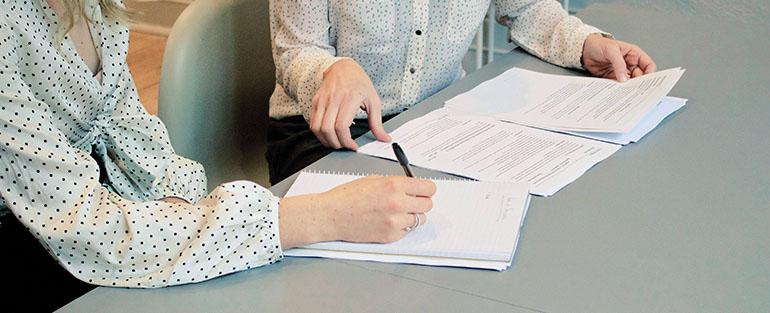Research principal

A research principal is the government agency or a natural or legal person in whose organization and activities research is conducted. The concept is defined in Swedish legislation, including the Act on Responsibility for Good Research Practice and the Examination of Research Misconduct (SFS 2019:504), and the Ethical Review Act (SFS 2003:460).
When research is carried out at a university, the university is the research principal for that research. This means that research data collected or generated by researchers employed by the university belong to the university. The collection of research data is considered part of a researcher’s professional duties and researchers are therefore required to manage research data in accordance with applicable laws and regulations.
Most Swedish higher education institutions are public authorities, with the government as their principal. This means that the research data generated during a research project ultimately belong to the Swedish state. As a result, both research materials and research results are regarded as official documents (allmän handling).
This entails that the university holds ownership of the research data and is also responsible for protecting the data, for example against unauthorized access. Under the Swedish Public Access to Information and Secrecy Act and the Freedom of the Press Act, the authority that holds official documents is responsible for assessing whether they can be disclosed upon request. The university is also typically responsible for archiving the research materials.
It is the research principal who applies for ethical review, where such is required, and who bears responsibility for ensuring that research activities comply with the provisions of the Ethical Review Act.
If a researcher changes institution
A researcher who moves from one higher education or research institution to another may not, without permission, take research data with them. If a researcher wishes to retain access to data after such a move, they must make a formal request for access through the new institution, in line with the Swedish principle of public access to official documents (offentlighetsprincipen). The original institution is responsible for determining whether the request can be granted.
A university may not distribute documents freely without regard to copyright legislation. It is important to note the distinction between distributing documents and disclosing official documents upon request, as governed by the principle of public access to official documents (offentlighetsprincipen).
Research projects with multiple partners
The university is the research principal for any data handled by a research group at the university. In a research project involving researchers employed by different institutions – such as a region, a private company, or another university – there will be multiple research principals. In projects requiring ethical approval that involve multiple research principals, the parties must jointly appoint one principal to submit the application for ethical review. The principal submitting the application must inform the others of the decision from the Swedish Ethical Review Authority but does not assume overall responsibility for the entire project. Each research principal is responsible for the part of the project conducted within their own organization.
It is therefore essential to identify which party or parties are acting as research principal(s) in multi-institutional projects. This helps ensure clarity about who holds overall responsibility for different parts of the research and reduces the risk of conducting research without the necessary approvals.
Research agreement
Projects involving multiple parties should, as a rule, be governed by a research agreement that outlines the rights and responsibilities of each party. A research agreement is drawn up to ensure that all parties have a mutual understanding of the conditions for, among other things, funding, how the research is implemented, and rights to results and data. This is particularly important when the parties represent organizations with differing views or policies regarding intellectual property rights and access to project materials.
A research agreement also clarifies who is the research principal for different parts of the project. If personal data will be processed within the project, a data processing agreement (personuppgiftsbiträdesavtal) may also be required.
Contact your university’s legal adviser for assistance in drafting such agreements.
Key issues to clarify in advance include how the research data from the project will be handled and used. The agreement should specify who is responsible for collecting the data, who else will have access to the data, or parts of the data, and how the material may be used.
Are you guaranteed access to all the data you need, for as long as you need them? If there is a need for shared rules for data management, these should be included with the agreement – for example in the form of a data management plan.
The research agreement should also address how the project’s data and results may be made available in the future. Who owns the research results or the data? Who holds the copyright? What rights do the parties have to use the data? Is there a risk that an individual researcher or a university could unintentionally lose access to the data after the project ends?
Research data are sometimes included in what the agreement defines as project results. In this case, the rights and obligations regarding the data are governed in the same way as other results. In other cases, data are regulated separately. The researchers involved must determine, on a case-by-case basis, which option is most appropriate depending on how they want to be able to use the data during and after the project.
Transfer of data
If a researcher at University B is granted access to research data that were collected at University A in a previous research project, and those data are transferred to University B, then University B becomes the research principal for those data and for the secondary research conducted on them. If the data are subject to confidentiality, the transfer between universities must comply with the provisions of Chapter 11 of the Public Access to Information and Secrecy Act (SFS 209:400).
